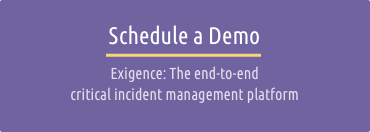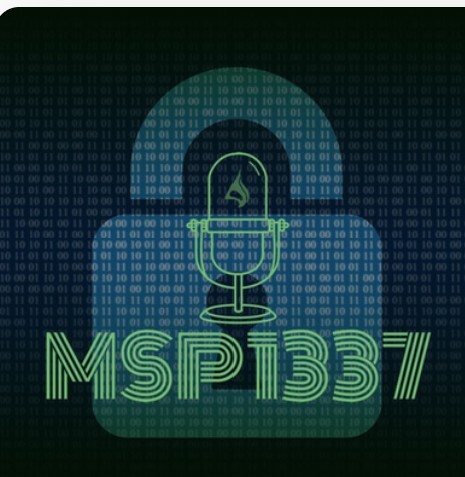
“Malicious cyber actors aren’t making the same holiday plans as you.” (CISA & FBI)
Summertime is prime time for cyberattacks. According to one survey, 58% of security professionals believe that there is seasonality in the attacks that their company experiences every year, with the majority citing summer as high season for breaches.
Why cyber activities are hotter during the summer
“1-in-5 cyberthreats detected between June and the end of September 2022 were higher risk, compared to just 1-in-80 in January.” (CyberMagazine)
With the onset of summer, many of us will go off on vacation for a week or two, sometimes more. And when we do go out there to get a break from the daily grind, there are those who will nevertheless stay connected, check their emails, and engage in job-related online communications.
This deep commitment to productivity is not good news for the security of an organization’s network, apps, and data. For, when people are on vacation, they are often more lax about following security procedures:
- They connect to unsecured public Wi-Fi hotspots to respond to emails or to access corporate data and applications.
- Cyber vigilance is lower making the likelihood of clicking on phishing emails or interacting with spearphishing attacks higher.
- Their computers are sometimes left unlocked in public locations.
- They may be accessing work apps and data with personal devices that typically have less robust endpoint protection.
Moreover, with a greater number of people taking vacations during the summer, the security team is inevitably left understaffed. This means that it will likely take a lot longer to both detect and contain an attack than it normally does.
What you can do to ensure cyber readiness IR plan’s key elements
In the summertime, more than ever, it is critical for the IT and security teams of in enterprise organizations, IR firms, MSPs, and MSSPs to be ready for an attack, so their ability to control and resolve will not be compromised.
And the three primary drivers of preparedness are:
- Effective IR planning
- Testing the plan with tabletop simulations
- Learning from clear, accurate, and actionable postmortem reports
Planning
Mitigating the risk of cybersummertime blues is not just about ensuring that employees are adhering to policy.
Rather, network and endpoint protection is also about optimizing preparedness so that IT, IR, and security teams will be ready for come-what-may. This is where a well-designed IR plan comes into play.
The IR plan serves as the strategic playbook that provides critical guidance to responders regarding policies and procedures, so they can contain and resolve an attack as quickly as possible.
Tabletop exercises
Once the plan is ready, it must be tested to gauge how effective it really is in making sure that everyone knows who does what and how they need to do it.
This is the tabletop exercise. It is proactive and interactive, engaging all relevant IR stakeholders in testing the efficacy of response plans, processes, and procedures.
By simulating an incident, the team gains hands-on training and experience along with the opportunity to fine-tune decisioning and execution.
Once completed, outcomes are reviewed and processes can be improved.
The postmortem report
What happens after the incident is resolved is just as important for preparedness as what you do before. Namely, reviewing what worked well during incident handling and what didn’t helps us to understand how we can increase our cyber readiness.
And nothing serves up the required insights like the postmortem report.
When this report covers the full unfolding of the incident, how well (or not so well) each step was executed, whether team members adhered to policies or not, and more, then we are well on our way to enhancing risk mitigation.
How Exigence can help
Exigence brings a SaaS incident planning and response platform that empowers IT, IR, and security teams to be ready for incidents during the summer months, and at any other time of the year.
It brings process-driven automation, clarity, and simplicity to the three must-haves of cyber readiness – IR planning, tabletop testing, and postmortem report generation.
Templated and digitized IR planning
With the Exigence platform, IR planning is fully digitized and template driven. The intuitive interface walks users through the different sections of the IR plan, helping them to fill out all the relevant parts quickly and accurately.
Streamlined tabletop exercises
The Exigence platform also enables teams to test preparedness with tabletop simulations. It provides playbook capabilities for guiding the team during the exercise, and with the Exigence Situation Room it drives seamless collaboration.
Automated alerts can be configured to notify team members of upcoming exercises, as well as reminders if they have been missed.
And scheduling is simple and fast, while the tabletops that have already been scheduled, those that are running, and those that have been completed, can all be easily searched.
In fact, with streamlined tabletop exercises and templated IR planning, service providers such as MSPs and MSSPs gain an unprecedented opportunity to enhance the services and support they offer their customers (and to grow the business).
One-click report generation
By pinning status updates to the Exigence Status Room, post-incident reports can be generated with one click. This profoundly simplifies and speeds up report creation and the postmortem process overall for ongoing improvements.
In conclusion
Ever since we were kids, summertime has been a symbol of freedom and relaxation. Even now, for many of us the anticipation is still great. Who doesn’t love a summer vacation?
While slowing down the pace during the break is great, slowing down the pace on cyber readiness isn’t, with the number and severity of attacks higher during this time of year.
But with the right capabilities in place, you can still make sure you’re prepared and stay ahead of malicious cyber actors, even if they aren’t making the same holiday plans as you are.
To learn more about how Exigence can help you get ready for this summer’s cyber heatwave, we invite you to book a demo by clicking here.









